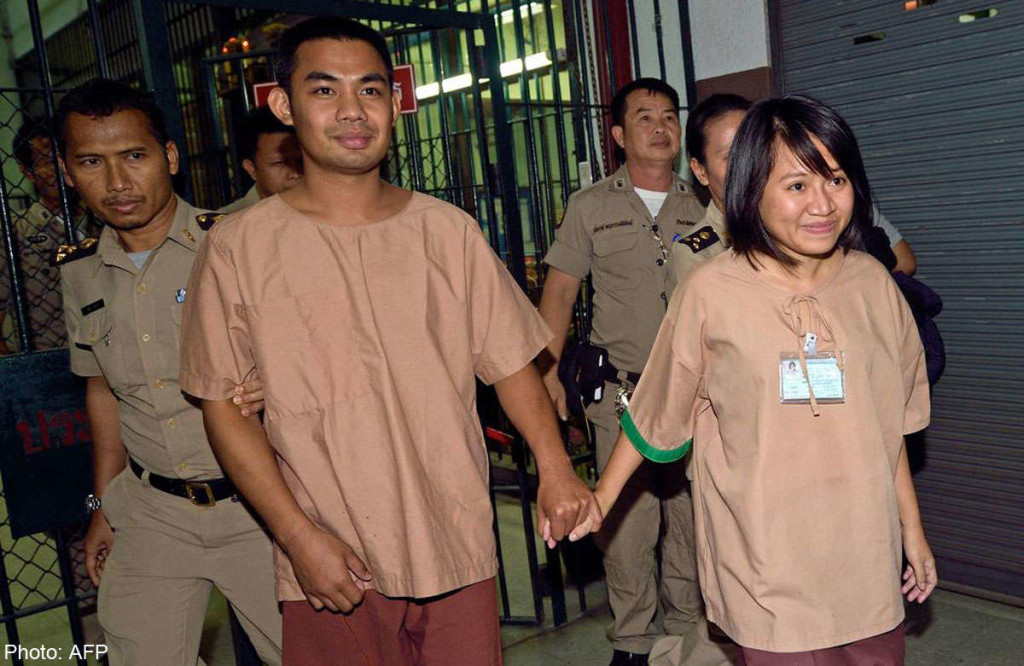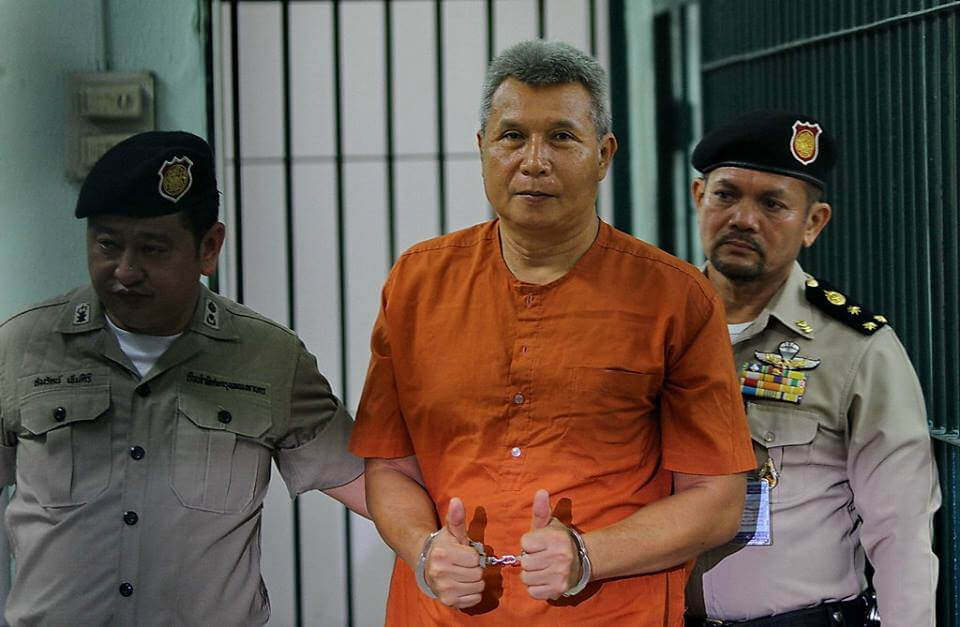By: Daniel McElroy
In Thailand, insulting royalty is a crime punishable by up to 15 years in prison (or more recently, even 35 years). “Lèse-majesté” law first entered the Thai criminal code in 1908 and has been part of every Thai constitution since, stating “The King shall be enthroned in a position of revered worship and shall not be violated. No person shall expose the King to any sort of accusation or action.”
In the three years since a May 2014 military coup further destabilized the country, however, the number of investigations for lèse-majesté has doubled the yearly average and only 4% of those charged are eventually acquitted, compared to 24% in the years immediately before the coup. There is no question that the Thai government is tightening its grip, and the military junta that took over following the 2014 coup declares itself to be staunchly royalist, but the fact remains that increasingly the law has been employed broadly to crush any political opposition.
Lèse-majesté laws used to be commonplace around the world, but largely fell out of use as absolute monarchies disappeared across Europe. However, in Southeast Asia the twentieth century saw reinventions of monarchy that combined older forms of absolute power with constitutional rule. Thailand specifically held off the yoke of colonialism by forming a series of military-backed regimes (constantly replaced through coup after coup) that gained legitimacy by publicly supporting King Bhumibol, who ascended to the throne in 1947. During Bhumibol’s reign and following his death in 2016, a succession of Thai military governments have continued to make the monarchy central to Thai national identity and have used its revered position and strict lèse-majesté law to strongarm the public into compliance with their political goals.
Thailand’s lèse-majesté law has been at the center of many of its high profile criminal cases over the past several years, but the law poses a particularly egregious threat to the freedom of expression that should be protected as a basic human right for all Thai citizens, as well as artists of all disciplines. There is no legal definition of what exactly constitutes an insult to the monarchy, which is a problem for people who use creativity to express their viewpoints, and whose messages can be subject to various interpretations. Unfortunately, the sole power to interpret rests with the police and courts in Thailand, and they are required by law to investigate every lèse-majesté accusation thoroughly.
Victims of politically motivated use of the law to silence dissent and chill free expression, comedian Jeng Dokchik, country singer Tom Dundee, and student actors have all been faced with serious lèse-majesté charges. The actors, who along with four others staged a satirical play called “The Wolf Bride” set in an imaginary kingdom, were convicted of lèse-majesté and sentenced to two and a half years in prison. They served 18 months before being pardoned by Bhumibol himself. Dokchik and Dundee, in particular, ran into trouble after participating in red-shirt rallies—supporting the United Front for Democracy Against Dictatorship (UDD) movement—that oppose the royalist yellow-shirt rulers.
In Dokchik’s case, the lèse-majesté charge was brought following a speech he gave at a UDD rally in 2010. First convicted in 2013, Dokchik was quickly released on bail and endured a years-long appeal process that finally ended in March 2017 with an upheld sentence. He is currently in prison serving the two-year jail term. During his speech, Dokchik refrained from ever mentioning King Bhumibol, but authorities determined that his criticism of the government implied blame for the king. The case stands as an example of how a well known and popular public figure can be silenced by authorities with the power to decide how the vague language of the controversial law should be interpreted.
An equally questionable lèse-majesté case is that of Tom Dundee, who was also charged after speaking at a UDD rally in November 2013. Because Dundee’s main trial occurred after the 2014 coup, it was conducted by a military court which arbitrarily denied him bail three times over two years. In an attempt to move the case along, Dundee pled guilty—a common outcome of repeated stalling by military courts. He received a total sentence of 10 years and 10 months in June 2016.
It is not publically known what Dundee apparently said to offend the name of the Thai monarchy because the lèse-majesté law also prevents such things from being repeated, so that the supposed insult does not happen twice. No court documents or trial transcripts include Dundee’s incriminating statement.
Furthermore, the military court that convicted Dundee has chosen to exploit his status as a well known artist even more by demanding that he compose a song inspiring national unity as part of his sentence. Censoring artists authentic voices and then forcing them to parrot the views of the government as part of a conviction is a deplorable affront to freedom of expression.
The Office of the United Nations High Commissioner for Human Rights officially called on Thailand to amend its harsh lèse-majesté law in June 2017, citing the high rate of prosecutions, disproportionate sentences, and the lack of transparency in court proceedings.
Pressure from the international community is an important element of resistance against this sort of repressive law that does more to protect those in power than to protect the name of the monarch, but standing up for the rights of individuals affected by the law is equally as crucial. We urge you to do your part by supporting our campaigns for the freedom of both Jeng Dokchik and Tom Dundee.




